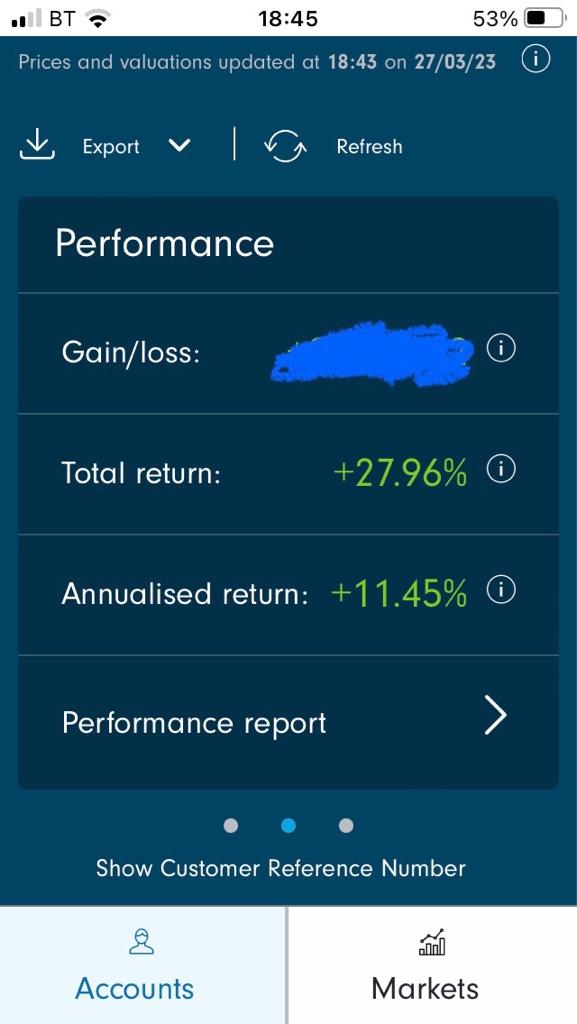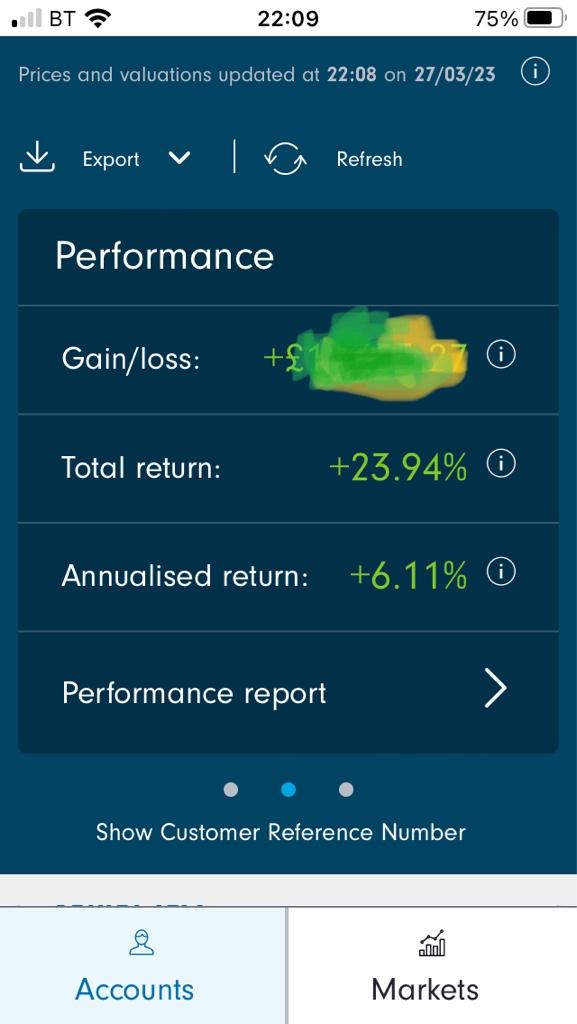G
GrumpyGranddad
Guest User
No pockets in a shroud.
Just saying

Just saying
If you are keeping them till the day you die then:
Sale £295,000 (estimate)
Inheritance Tax £120,000 (estimate)
But no capital gains I think.
and of course, the kids get nothing until they pay the tax. So they have to pay the tax, then sell the flats, then repay the massive bridging loan they took out to pay the tax.
If you are keeping them till the day you die then:
Sale £295,000 (estimate)
Inheritance Tax £120,000 (estimate)
But no capital gains I think.
and of course, the kids get nothing until they pay the tax. So they have to pay the tax, then sell the flats, then repay the massive bridging loan they took out to pay the tax.
Personally, I'd look at protecting all of those clever investment decisions you are making for the long term.
Sorry folks, I’m just going off topic for a few seconds then we can get back to that concept of how borrowing large sums of money at high interest rates will result in great riches.
You flatter my presumed literary leanings, sadly mistakenly. It's fair bet though that most of the best quotes were by Samuel Johnson, or Sun Tzu, or Winston Churchill.Sorry folks, I’m just going off topic for a few seconds then we can get back to that concept of how borrowing large sums of money at high interest rates will result in great riches.
That quotation. I almost never bothered to check who said it as I thought it was bound to be Dr Johnson. Upton Sinclair. An American to boot.
You are clearly a literary man with a gift for a well placed quote.
How about starting a new thread called “ Good Reads “ or something like that with your recommendations. I’m often stuck for a good book when I’m away in the van.
Sorry folks, I’m just going off topic for a few seconds then we can get back to that concept of how borrowing large sums of money at high interest rates will result in great riches.
You flatter my presumed literary leanings, sadly mistakenly. It's fair bet though that most of the best quotes were by Samuel Johnson, or Sun Tzu, or Winston Churchill.
Equities, while having advantages mentioned, have more price volatility, as demonstrated recently.People can argue all day long about which is best, property or equities.
The big advantage equities have is liquidity.
If you need to raise money in a hurry for whatever reason, selling shares takes a fraction of a second. Selling a house takes a bit longer and a lot of expense.
I expect it will still be cheaper to borrow say £100,000 against property than against shares.
Risk-free yes and hence attractive for some situations but of course with sterling inflation likely to remain above that 5% level for the time being, those folks will still be losing money in real terms. Sorry if I'm stating the obvious, ie that real returns on cash are always mediocre.Cash in the bank, at the moment you can get 5% risk free return, many would take that right now.
Great work. Now we have the full picture.Risk-free yes and hence attractive for some situations but of course with sterling inflation likely to remain above that 5% level for the time being, those folks will still be losing money in real terms. Sorry if I'm stating the obvious, ie that real returns on cash are always mediocre.
On the other hand the FTSE 100 on a total return basis has I think averaged 7.75% pa since its inception in 1984, which is more than 5% pa after inflation. The MSCI World index, converted to sterling, has done even better, at around 7% pa after inflation since 1987 IIRC. (A fairly well diversified basket of multinational trackers such as the one Amarillo created for his kids will emulate that reasonably faithfully).
I'm defo not advocating borrowing cash to invest in equities, just making the point that equities have historically way out-performed any other reasonably liquid asset class over the long term. You just need the circumstances, and guts, to be able to leave your money there even during the drawdown periods.

Like I said we all need one house to live in but if equities outperform property in the long run, why hold on to another 5 houses and borrow on them ?As well as each having a JISA, each of my boys has an investment account. Each April I do a bed and JISA, to transfer funds from their investment account to their JISA. Their investment accounts have performed remarkably well.

Like I said we all need one house to live in but if equities outperform property in the long run, why hold on to another 5 houses and borrow on them ?
It wasn’t me who said don’t invest on margin by the way. That was Warren Buffet, he’s done ok.
Great result! Much better than my daughters JISA. Which company do you use?As well as each having a JISA, each of my boys has an investment account. Each April I do a bed and JISA, to transfer funds from their investment account to their JISA. Their investment accounts have performed remarkably well.

I did say… at the moment.Risk-free yes and hence attractive for some situations but of course with sterling inflation likely to remain above that 5% level for the time being, those folks will still be losing money in real terms. Sorry if I'm stating the obvious, ie that real returns on cash are always mediocre.
On the other hand the FTSE 100 on a total return basis has I think averaged 7.75% pa since its inception in 1984, which is more than 5% pa after inflation. The MSCI World index, converted to sterling, has done even better, at around 7% pa after inflation since 1987 IIRC. (A fairly well diversified basket of multinational trackers such as the one Amarillo created for his kids will emulate that reasonably faithfully).
I'm defo not advocating borrowing cash to invest in equities, just making the point that equities have historically way out-performed any other reasonably liquid asset class over the long term. You just need the circumstances, and guts, to be able to leave your money there even during the drawdown periods.
Absolutely, if your timescale is 1 year you shouldn’t be anywhere near equitiesI did say… at the moment.
It depends on your timeframe, your attitude to risk and timing the markets. over the longer term equity tracker has a better return. Over the last 12 months S&P is still down -12%, has been down a lot further, and with a recession still possible is still very choppy. Growth stock have fared worse most are down -80%.
Right now, being in cash at 5% risk free might be a decent strategy.
Not quite what I was implying.A
Absolutely, if your timescale is 1 year you shouldn’t be anywhere near equities
Great result! Much better than my daughters JISA. Which company do you use?

I have twice made big (for me) entries.FTSE100 5-year chart. Only a modest gain. 3-years is excellent. All about entry and exit point.
View attachment 106524
Loved that book.Got you. Sort of. I am now going back to Congo Journey by Redmond O’Hanlon. I would have been 100 miles further up the river if I hadn’t started on this bl**dy forum.
Wouldn’t it be great if it’s lain dormant for years and suddenly starts selling again due to being reviewed on a thread about interest rates on a Campervan forum.Loved that book.
My wife made me read it in another room as she couldn't stand the constant chuckling.
Okay, just ordered the Kindle edition.Wouldn’t it be great if it’s lain dormant for years and suddenly starts selling again due to being reviewed on a thread about interest rates on a Campervan forum.
Old Redmond would love that. The American sidekick wouldn’t get it though. The enthusiasm sponge.
I’m not that far in due to being in a 12 round bout with Amarillo and ending up concussed. Now that I’ve picked myself up off the canvas I can crack on.
Onwards up the Congo ! And that’s the first time that’s been said on here.


The VW California Club is the worlds largest resource for all owners and enthusiasts of VW California campervans.

